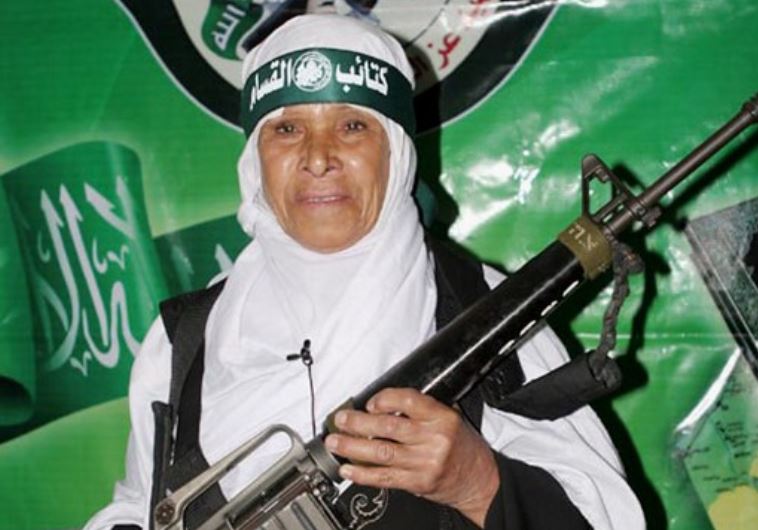Iran’s Fighting Force in Gaza Is the One Calling and Firing the Shots
الميليشيات التابعة لإيران في غزة هي المسيطرة والتي تقوم باطلاق النيران
Yaniv Kubovich/Haaretz/June 10/2018
Hamas may rule the Strip, but it’s Islamic Jihad that will determine whether rockets are directed at Israel
Hamas did in fact take control of the recent demonstration on the Gaza border with Israel but it is not the only party responsible for the subsequent escalation in Gaza – or for putting a stop to it. Hamas may finance, direct and decide the level of intensity of the border protests, but to a large extent it is Islamic Jihad that will determine whether the confrontation with Israel remains along the border — or escalates into the firing of mortar shells and rockets over the border.
In recent years, members of Islamic Jihad have managed to create clear rules of the game vis-à-vis the Israeli army. Unlike Hamas, which is also responsible for the civilian population in Gaza and has political ambitions, Islamic Jihad is committed to nothing other than armed confrontation with Israel. It therefore dictates how the Israel Defense Forces conducts itself: Any incident in which Islamic Jihad inflicts casualties or property damage – for the most part involving the firing of rockets or a significant attack along the border fence, is immediately countered with an Israeli military response.
And yet, Islamic Jihad is not exactly the master of its own house. By providing economic and military assistance over the years, Iran has turned the organization into its own military wing in Gaza and the West Bank. “The more we continue to see harm to Iran in Syria and to the extent that its situation is difficult, the more Tehran’s motivation to deploy Islamic Jihad in Gaza against us will increase,” a senior officer in the IDF’s Southern Command said recently. “The Jihad’s command headquarters is outside Gaza, but the Iranians have an interest in escalating the situation here. Tomorrow Iran, from its standpoint, can take a decision to deploy the Jihad against Israel.”
Even if IDF officials don’t admit it, the significance of hitting Islamic Jihad targets is well understood in the army, as demonstrated by two recent incidents in which the organization was dealt a blow. The first occurred on October 30 when Islamic Jihad members were killed in an Israeli attack on terror tunnels near Kissufim. Army officials knew that this would prompt a response, despite Hamas’ attempts to head one off. A month later Islamic Jihad fired mortar shells at Israeli communities and army forces near the Gaza border.
The second incident occurred last month, when massive weapons fire was directed at communities near the Gaza border and a mortar shell hit a kindergarten at Kibbutz Ein Hashlosha. That was in response to the IDF’s killing of three Islamic Jihad members two days earlier. The army then had a day of combat that ended after Hamas demanded a cease-fire.
Hamas isn’t interested in escalation, but it can’t prevent an Islamic Jihad response every time. Hamas is also aware of the following that Islamic Jihad has on social media after it clashes with the IDF and the power that it has on the Gaza street when it fires mortar shells at Israeli border communities. Hamas has chosen to cooperate with Islamic Jihad, albeit in a limited way.
Palestinian Islamic Jihad was founded in Gaza in the late 1970s and early 1980s based on the radical ideology of Egypt’s Islamic Jihad, an offshoot of the Muslim Brotherhood that preached the establishment of an Islamic caliphate through armed struggle. The focus of Palestinian Islamic Jihad has been armed struggle with Israel.
Palestinian Islamic Jihad currently has several thousand fighters whose military training is directed by Iran. Initially the group received assistance from Hamas in obtaining weapons but in recent years, it has already amassed a substantial arsenal including Qassams and Grad rockets with ranges capable of targeting the center of Israel. It also has its own weapons production facilities.
The relationship between Islamic Jihad and Hamas has been exceedingly complicated recently. Usually Islamic Jihad toes the Hamas line on policy and sometimes cooperates with Hamas during periods of military escalation. The two claimed joint responsibility for the recent rocket fire across the Israel border.
And yet, the difference in the goals of the two groups has meant that Islamic Jihad members often pose a challenge to Hamas, mainly by carrying out attacks in violation of restraints Hamas tries to impose. Despite Hamas’ desire to assert its authority in Gaza, it sometimes yields to Islamic Jihad’s actions out of a desire to draw closer to Iran, in light of the difficult situation in the Gaza Strip.
As the senior source in the IDF’s Southern Command put it: “There is currently coordination between the organizations, and Hamas has control but at every step, the Islamic Jihad can also be independent and act as it sees fit to realize the Iranians’ interests.”























